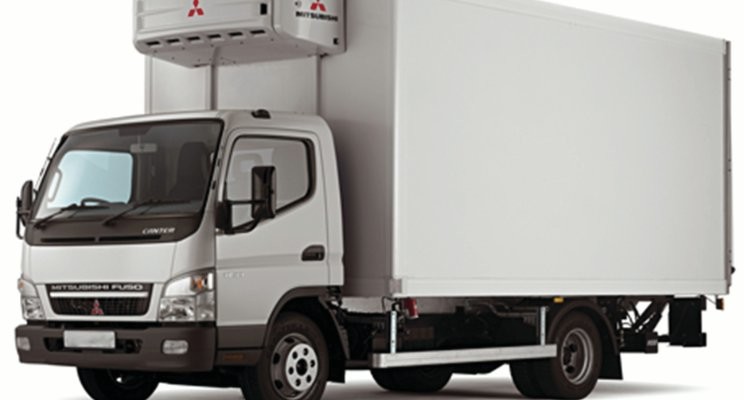Locating the Right Cold Transport Companies for Your Logistics
Locating the Right Cold Transport Companies for Your Logistics
Blog Article
A Comprehensive Summary of the Mechanisms Behind Refrigerated Truck Transport and Its Role in Food Security
Cooled truck transport is vital in keeping food safety, employing sophisticated temperature level control mechanisms and insulation innovations to safeguard disposable goods throughout transit. The combination of sophisticated monitoring systems makes sure real-time oversight, enabling instant intervention in case of temperature level deviations. These important aspects not just maintain the integrity of foodstuff but also play a vital role in protecting against foodborne diseases. Understanding just how these mechanisms function together increases crucial questions regarding their efficiency and potential locations for renovation within the market. What ramifications do these factors have for the future of food safety and security?
Significance of Refrigerated Transportation
Chilled transportation plays an essential function in preserving the stability and security of perishable items throughout the supply chain (refrigerated truck companies). This customized logistics system is necessary for preserving the quality of food, including fresh produce, milk items, meats, and fish and shellfish, which are susceptible to spoilage when subjected to temperature level fluctuations. The capacity to keep a constant and regulated atmosphere guarantees that these items keep their dietary value, taste, and security for consumers
Additionally, cooled transportation lessens the threats of foodborne diseases, which can develop from the development of hazardous microorganisms in incorrectly saved items. By sticking to stringent temperature needs, services not only abide by governing standards but likewise foster customer count on and brand dependability. The economic effects are considerable; reduced wasting prices convert to lower losses for retailers and providers, adding to general success.
In addition, the raising global demand for high-quality and fresh food further stresses the importance of chilled transportation. As supply chains end up being much more complicated and extend globally, the requirement for effective temperature-controlled logistics continues to expand, underpinning the whole food circulation network and making certain that perishable items reach their locations securely and effectively.
Temperature Level Control Mechanisms
Keeping optimal temperature control is vital in the transport of disposable products, and a range of mechanisms are employed to achieve this objective. Cooled vehicles use sophisticated refrigeration systems, largely making use of vapor compression modern technology, which flows refrigerant with evaporator and condenser coils to extract warm from the freight location. This procedure ensures that the interior continues to be continually awesome, consequently protecting the high quality and security of the products being carried.
Furthermore, vehicles are furnished with temperature tracking systems that give real-time information on the internal atmosphere. These systems frequently consist of electronic sensing units and alarm systems to alert operators in case of temperature fluctuations, enabling immediate corrective actions. Some refrigerated trucks likewise include programmable temperature settings, permitting exact control customized to specific kinds of cargo, such as veggies, pharmaceuticals, or fruits.
In addition, the usage of pre-cooling techniques before packing improves the performance of temperature control. By reducing the freight area's temperature level before the introduction of items, the danger of temperature level spikes during transportation is lessened. These systems jointly add to a trusted chilly chain, crucial for maintaining the stability and safety of disposable food things throughout the transportation procedure.
Insulation Technologies
Insulation innovations play a vital function in improving the performance of cooled vehicle transportation by reducing thermal exchange between the freight area and the external atmosphere. Effective insulation is crucial for maintaining the needed temperature for perishable goods, consequently making sure food safety and security and quality during transportation.
Usual insulation products utilized in refrigerated trucks consist of polyurethane foam, polystyrene, and fiberglass, each providing differing degrees of thermal resistance. Polyurethane foam, recognized for its remarkable protecting residential properties, is usually applied as stiff panels that can be built to fit the truck's interior.

Advanced Surveillance Equipment
To ensure the stability of perishable products during transport, advanced surveillance systems have actually arised as a crucial development in the chilled vehicle industry - transport refrigeration click reference company. These systems make use of a combination of sensing units, information loggers, and real-time monitoring innovations to continuously keep track of temperature level, humidity, and general cargo conditions throughout the trip. By offering immediate comments on environmental variables, these systems permit for timely restorative actions, therefore guarding product quality
Modern keeping an eye on systems are furnished with wireless connectivity, allowing smooth information transmission to logistical centers and stakeholders. This connectivity facilitates remote tracking, which is crucial for keeping compliance with industry guidelines and standards. Alerts can be produced in real-time, notifying drivers of any kind of variances from pre-set thresholds, hence lessening the danger of putridity.
Additionally, the combination of advanced analytics check over here and device discovering formulas boosts anticipating capacities, permitting far better preparation and danger assessment. Historical information accumulated from these systems can inform future transport methods, maximizing courses and reducing prospective hazards. On the whole, the release of sophisticated monitoring systems represents a substantial improvement in the refrigerated transportation market, strengthening the dedication to preserving the top quality and security of subject to spoiling items throughout their trip.
Influence on Food Security Specifications
The assimilation of advanced tracking systems in cooled vehicle transportation has substantially affected food safety requirements across the supply chain. These systems allow real-time tracking of temperature, moisture, and various other critical criteria important for maintaining the honesty of disposable items. By ensuring that products stay within defined temperature level ranges throughout transportation, these modern technologies minimize the danger of microbial growth and putridity, which are pivotal in food safety and security.

The fostering home of information analytics additionally permits positive decision-making, enabling business to recognize prospective issues before they rise into food safety violations. Therefore, the unification of sophisticated tracking systems not only enhances functional effectiveness yet also cultivates greater accountability in the food supply chain. This advancement underscores the essential duty of innovation in boosting food safety and security standards and making certain customer self-confidence in the items they obtain.
Final Thought
In final thought, cooled vehicle transportation is essential for preserving food security through effective temperature level control, advanced insulation technologies, and continuous surveillance systems. These mechanisms work synergistically to preserve the high quality of subject to spoiling goods and lower the danger of foodborne illnesses. Adherence to rigid food safety requirements is attained via the execution of these technologies, highlighting the important function of refrigerated transportation in the food supply chain and its effect on public wellness.
Chilled truck transport is vital in keeping food safety and security, utilizing innovative temperature level control systems and insulation modern technologies to safeguard disposable goods throughout transit - refrigerated truck companies. Proper upkeep of insulation integrity, consisting of regular checks for wear or damage, is also crucial to endure the performance of refrigerated transportation systems and make certain compliance with food security regulations
The combination of sophisticated surveillance systems in chilled vehicle transport has actually substantially influenced food security criteria throughout the supply chain.In final thought, chilled truck transport is vital for maintaining food security via reliable temperature level control, progressed insulation innovations, and continuous surveillance systems. Adherence to rigid food security standards is attained through the implementation of these technologies, highlighting the important role of refrigerated transport in the food supply chain and its impact on public wellness.
Report this page